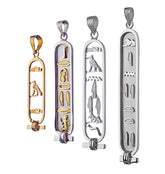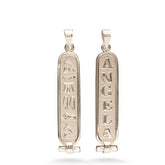Ma’at: The Heart of Ancient Egyptian Order and Balance

Ma’at (pronounced Muh-aht) was both a goddess and a philosophical concept representing truth, balance, harmony, justice, and cosmic order. She was often depicted as a woman wearing an ostrich feather on her head—this feather became the ultimate symbol of Ma’at and was used in one of the most critical judgments in the afterlife.
Ancient Egyptians believed that the world was created in perfect harmony and balance. It was the duty of every person, especially the pharaoh, to uphold Ma’at and keep the universe from descending into disorder.
Ma’at was not just a cosmic force—it was a practical philosophy that influenced every aspect of Egyptian life.
Egyptian law was based on the principles of Ma’at. Judges, called priests of Ma’at, sought fair resolutions in disputes, emphasizing truth and balance rather than rigid legal codes. Falsehoods and dishonesty were seen as violations of Ma’at and were severely punished.
Egyptians were expected to live by Ma’at in their daily actions—being truthful, showing kindness, respecting others, and maintaining order in their homes and communities.
Perhaps the most famous role of Ma’at comes from Egyptian beliefs about the afterlife. Upon death, a person’s soul underwent the Weighing of the Heart ceremony in the Hall of Ma’at. The heart of the deceased was placed on a scale against the feather of Ma’at. If the heart was lighter than the feather, the person had lived a righteous life and was allowed to enter the paradise of the Field of Reeds. If the heart was heavier, weighed down by sins and dishonesty, it was devoured by the terrifying goddess Ammit, and the soul ceased to exist. This belief reinforced the idea that Ma’at was not just an earthly law but a divine one.
The philosophy of Ma’at continues to inspire people today. The idea of balance, truth, and justice resonates across cultures and philosophies. Whether in ancient times or now, living by Ma’at means striving for honesty, fairness, and responsibility—principles that remain timeless.








